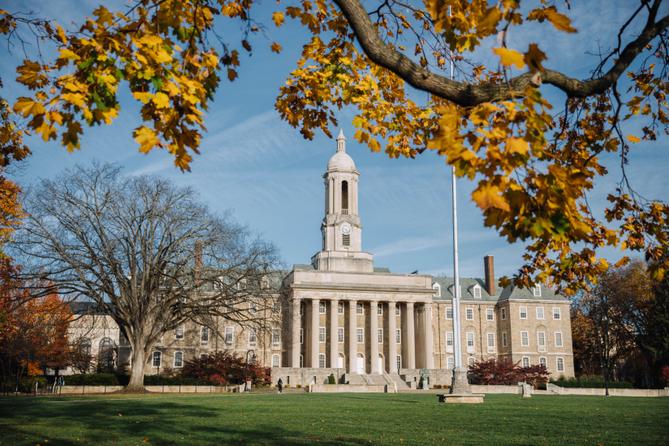Central to Spotlight PA’s mission is holding powerful institutions in Pennsylvania accountable for the taxpayer money they spend, the decisions they make, and the actions they take.
That starts with basic transparency — in short, conducting public business in public.
Penn State University is one of the largest and most influential institutions of higher education in the country. It receives hundreds of millions of dollars in taxpayer funding each year, and continues to seek more public assistance from the state legislature.
But for years, Penn State’s governing body — the one with ultimate authority over how that money is spent — has conducted public business in private, behind closed doors.
That’s why Spotlight PA, in partnership with the Reporters Committee for Freedom of the Press, today sent a letter to the university requesting the Board of Trustees “immediately cease holding improper executive sessions and conferences, advertise and record meeting minutes for all public meetings, and halt the practice of deliberating in secret.”
The board has defended its practices by claiming it is exempt from meeting in public, variously asserting privilege or that the private “gatherings” are purely informational and without deliberation. But Spotlight PA’s reporting shows that the public meetings have seemingly been reduced to mere formalities.
For example, before the trustees’ May 2023 meeting, the board chair and vice chair asked trustees to raise questions during the group’s private session instead of at the public meeting, according to internal communications obtained by Spotlight PA.
During the full board’s May 5 public meeting, a trustee stated opinions about spending on university renovations. Board Chair Matthew Schuyler responded: “Thank you for coming to life at our public sessions and not mentioning these things at our previous three sessions discussing these matters.”
Last year, Penn State leaders and trustees privately discussed the university’s finances and budget deficit, resulting in changes to the administration’s proposed operating budget.
The board’s executive committee, consisting of top university officials, has not met in public for nearly 12 years, and Penn State has not made public meeting agendas or minutes from this committee.
University President Neeli Bendapudi has publicly pledged greater accountability and transparency for how Penn State uses taxpayer funds and the university’s new budget model.
But so far, the practices of the Board of Trustees have not changed.
“PSU’s lack of transparency harms the public it is designed to serve and educate,” wrote Paula Knudsen Burke, an attorney for Reporters Committee for Freedom of the Press who is representing Spotlight PA and who received her law degree from Penn State. “The PSU Board of Trustees’ misuse of conferences and executive sessions violates the letter and intent of the Sunshine Act and, consequently, erodes the public’s faith.”
Because of its designation as a state-related university, Penn State’s disclosure obligations under the state’s open record laws are already minimal compared to other public institutions.
However, the state legislature amended the open meetings law in 2004 to “explicitly include bodies such as Penn State Board of Trustees within its scope,” Burke wrote in the letter.
At the time, according to Burke, the author of the bill, Sen. Harold F. Mowery Jr., “explained that it was important to bring ‘sunshine’ to a process that involved millions of public dollars and that by improving transparency, the Act would allow citizens to ‘visibly not only see, but also hear what is going into this decisionmaking process.’”
Penn State’s responsibilities under the open meeting laws are not vague or confusing, and Spotlight PA seeks to hold the institution accountable for those responsibilities on behalf of students, faculty, and taxpayers across Pennsylvania.
Christopher Baxter is the CEO & President of Spotlight PA, a nonpartisan, nonprofit newsroom producing investigative and public-service journalism for Pennsylvania. Support Spotlight PA’s vital journalism by making a tax-deductible gift now at spotlightpa.org/donate.

